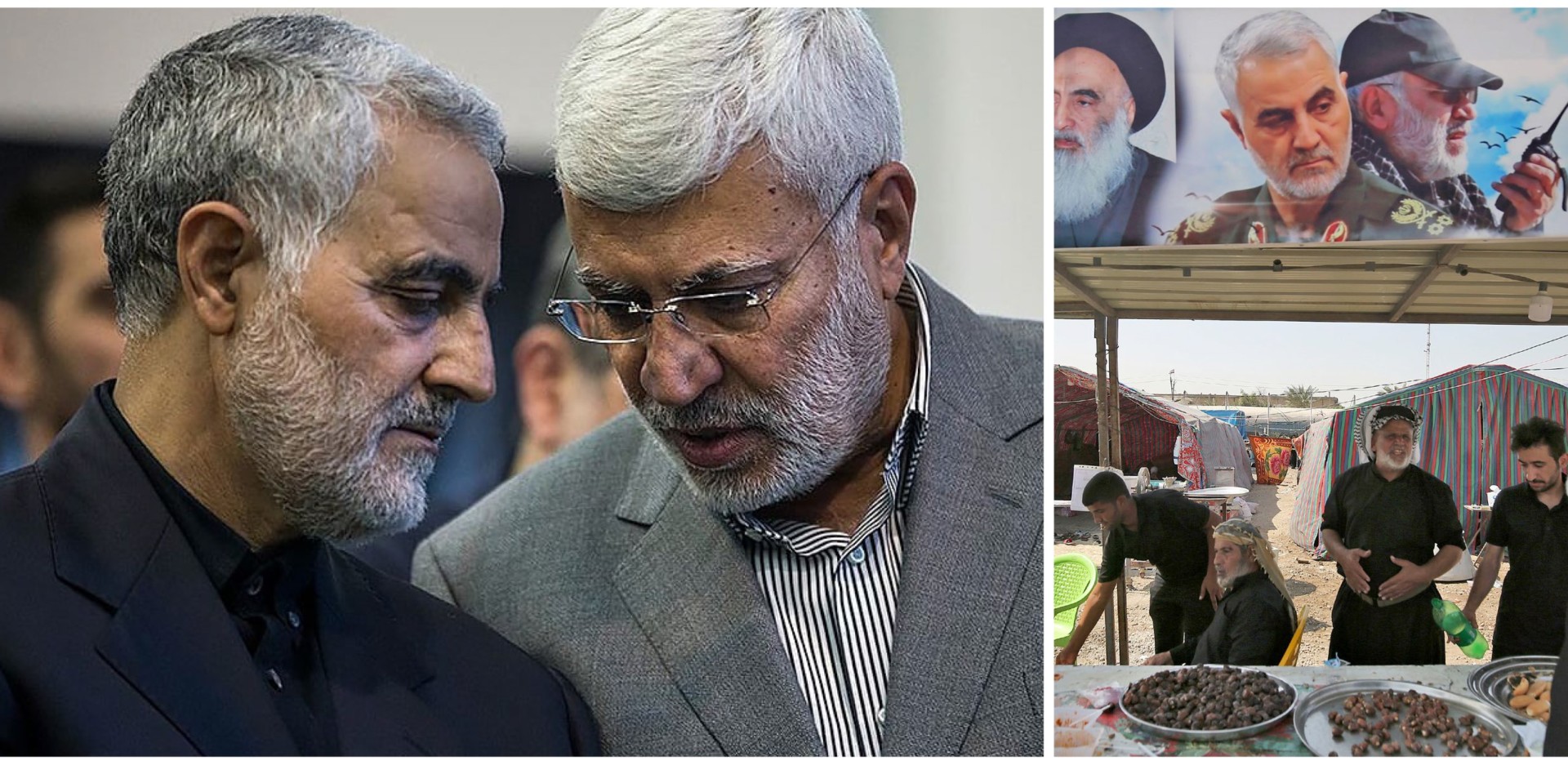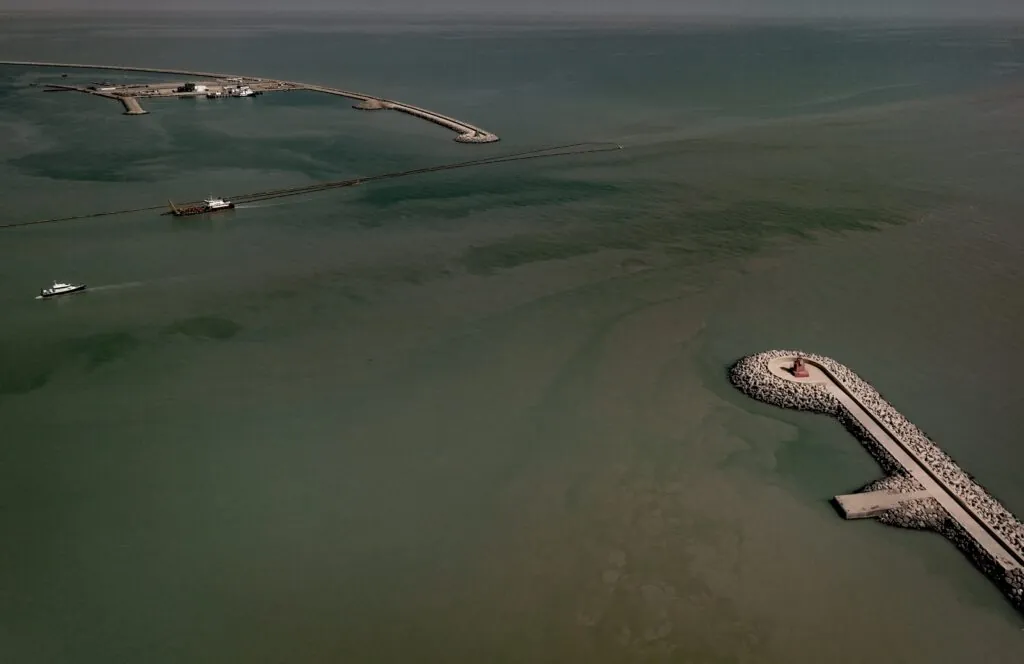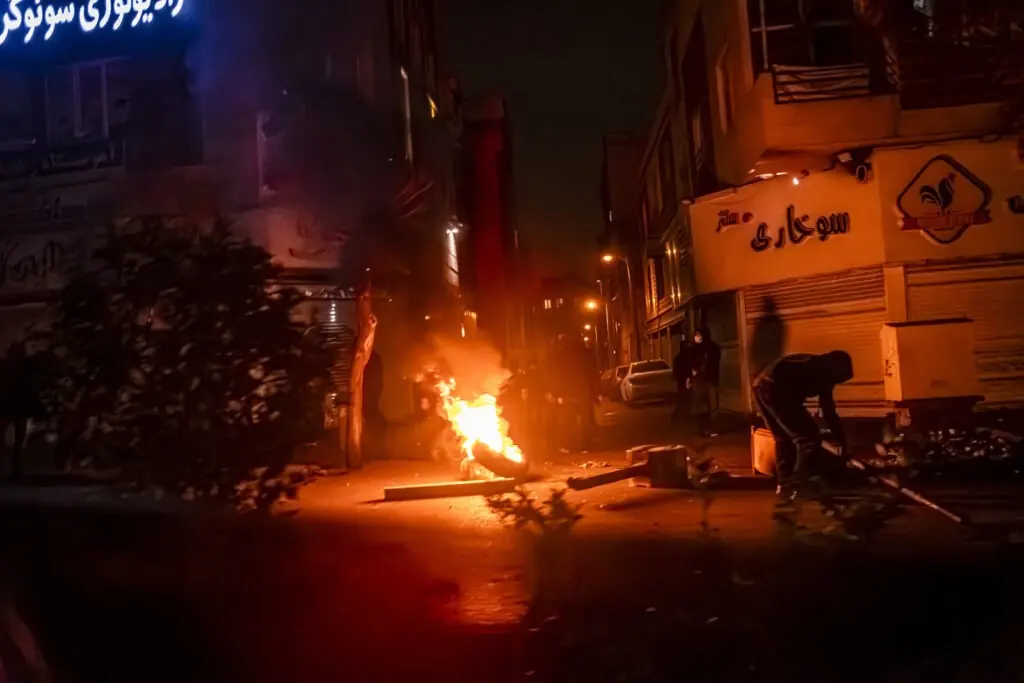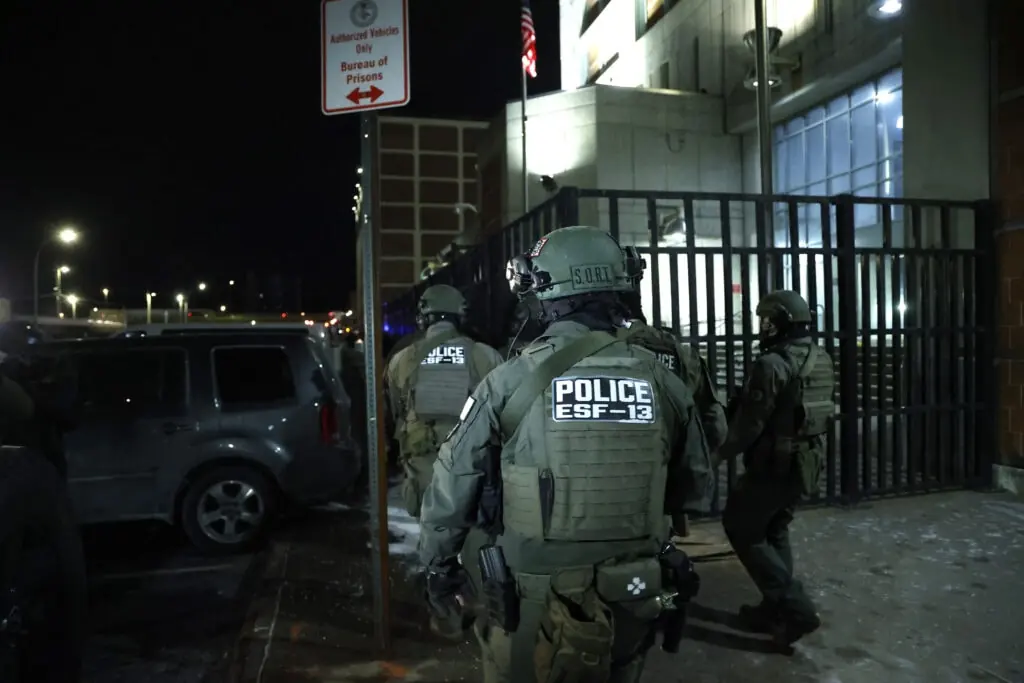
A Thousand Hezbollahs: Iraq’s Emerging Militia State
This intelligence briefing provides extensive, never before reported details on how Iran-linked Iraqi militias are creating a new order to dominate a strategic region of the country that connects Iraq and Syria. Iranian-linked militia groups are taking advantage of the vacuum caused by the collapse of ISIS’s caliphate to begin building security, social, political, and economic structures to dominate this strategic area of Iraq.
- The militias’ infiltration into police and security forces has allowed militias to control Iraqi citizens’ movements, trade, occupation, and other aspects of private life. Some factions threaten journalists, block roads to important commercial areas to hamper business, and even take scores of residents from villages to unknown locations.
- Militias have used threats and acts of violence to get their preferred academics put in charge of some of the more important colleges in provinces where the militias are flourishing. They have also established schools that do not follow local or federal norms and rules.
- Following the liberation of Mosul and the rest of Ninewa province from ISIS, the militias began manipulating land ownership to engage in demographic engineering. Agricultural lands in the Ninewa Plain area were distributed among the militias. These villages on the outskirts of Mosul were predominantly Christian. ISIS seized them in 2014. After security forces retook the villages, militias seized the lands in Bartella, Hamdaniya, and other areas, preventing many Christians from returning. Militia fighters from central and southern Iraq have registered as residents of Ninewa Plain and Mosul in order to legitimize the seizure of property there.
- The Shiite religious endowments incorporated 17 religious sites and shrines in the old city in Mosul. When such moves were contested, Shiite militias sent a show of force to local authorities to establish ownership of Sunni sites and endowments.
- The militias took control of more than 72 oil fields in the Qayyarah area south of Mosul that ISIS had previously controlled, and the factions pilfer around 100 tanker trucks of crude oil daily.
- The militias make hundreds of thousands of dollars every day through extortion at illegal checkpoints they have set up across the country.
- The militias demand protection money of $1,000 to $3,000 monthly on larger restaurants. Owners who fail to pay could have their restaurants blown up, and other parties, including the Iraqi army, would falsely attribute the explosion to ISIS.
- Local and provincial politicians cooperate with some of the militias out of their own interests, courting the PMF for political and financial support.
- Frictions have escalated among the militias: between the militias loyal to Iran and those loyal to the Iraqi shrines, and between the Shiite militias and the Sunni and tribal militias, who receive fewer positions of authority and less effective weaponry and equipment than their Shiite counterparts.
The conclusion of the counter-ISIS campaign, far from stabilizing Iraq, is creating the context for future conflict and disorder that will have regional consequences and create complications for the United States. A key unintended consequence of the U.S. move to effect regime change in Iraq is that the country fell into Iran’s geopolitical orbit. Tehran was able to place its political proxies – largely among elements of Iraq’s Shiite majority community – in the new political system built by the United States. However, the nascent state was going to be weak and thus insufficient for the Islamic Republic’s efforts to dominate its western neighbor. For this reason, Iran moved to cultivate Shiite militias as a key instrument through which it could transform a state that represented a threat into a one that is weak and subordinate to its wishes.
It was not until well after the 2011 U.S. military departure from the country, and really after ISIS was able to establish its caliphate in 2014, that the Iranian-aligned Iraqi Shiite militias became visible as a major force. Through the critical role it played in the dismantling of the ISIS caliphate in Iraq, the Shiite militia coalition known as the Popular Mobilization Forces (PMF) established itself as a major force. By 2017, and as a consequence of its heavy involvement in the liberation of areas that had been taken over by ISIS, the Shiite militia alliance emerged as a power center rivaling Baghdad and a threat to human security in the country. Not only did these militias in an unprecedented manner seize control over largely Sunni areas of the country, but they also posed a major challenge to the writ of the Iraqi state.
In this briefing, we offer granular details of the extent to which Shiite militias have embedded themselves into the political economy of areas that they took from ISIS. While attempts to bring these militias within the fold of the Iraqi state have been unsuccessful, this report shows how these nonstate actors have become a parallel state by creating their own political economy, which is riddled with corruption. Additionally, these Shiite militias have coerced their way into Iraq’s national security apparatus and have been recipients of official state funds since the prime minister at the time, Haydar al-Abadi, moved in 2018 to try to incorporate them into the state security system. The writ of the federal government in Baghdad is being weakened in the process. The January 2020 U.S. decision to assassinate a top leader of the PMF, Abu Mahdi al-Muhandis, along with the top Iranian commander, Maj. Gen. Qassem Soleimani – the architect of the Iran’s Iraqi Shiite proxy network – did strike a major blow to these militias but also emboldened them, and as a result they remain deeply rooted in the country.
These militias represent a major challenge for U.S. efforts to work with the Iraqi government and counter Iran’s influence in the country. More recently, these militias have also begun to threaten Turkish forces trying to project influence into northern Iraq. This report highlights how these Shiite Islamist armed nonstate actors are controlling key sectors beyond security, such as real estate, construction, infrastructure, and education. In this way, they are consolidating their grip in northwestern Iraq and are enabling Iran’s broader regional strategy extending through the Levant to the Mediterranean.
The views expressed in this article are those of the author and not an official policy or position of New Lines Institute.




